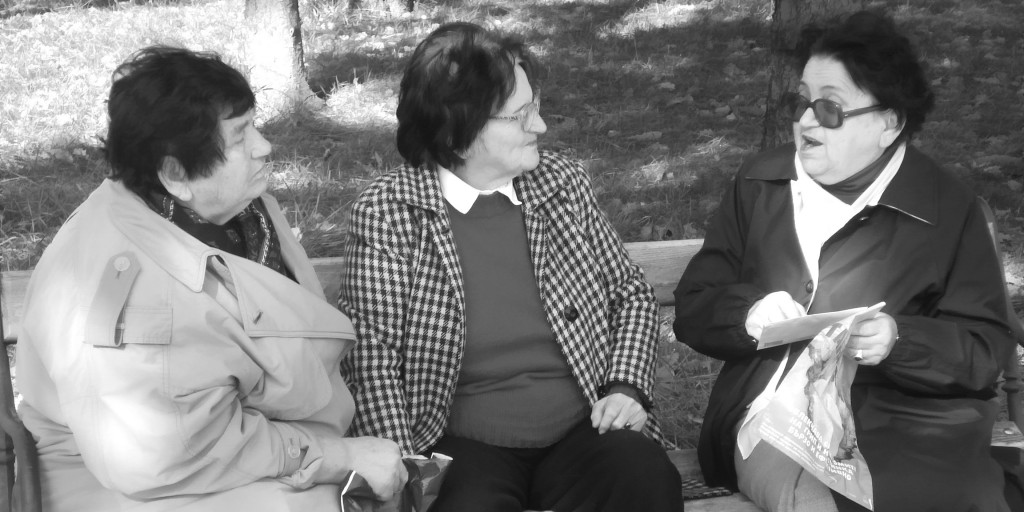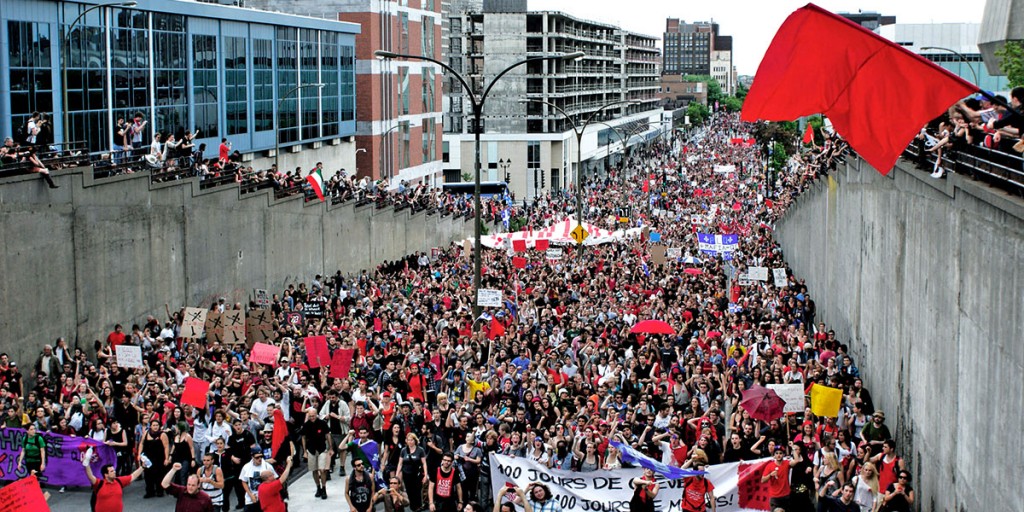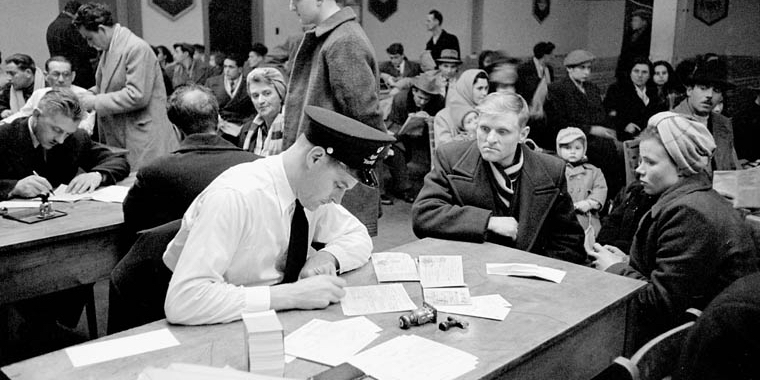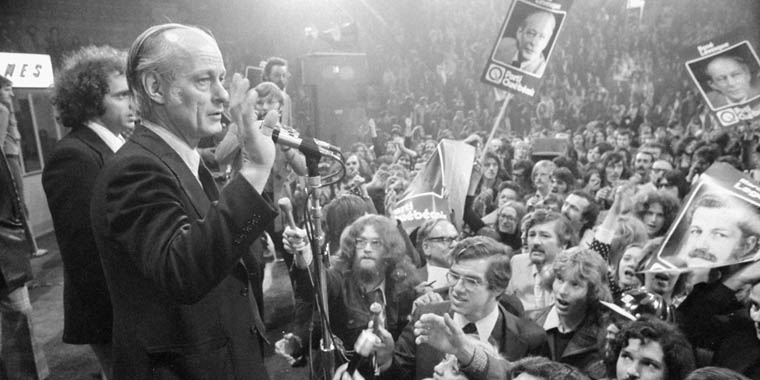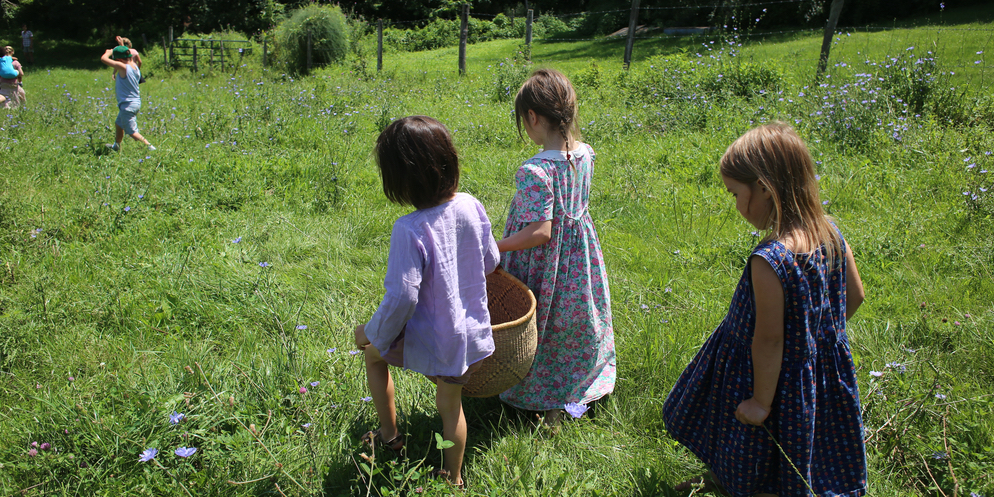Life HistoryExplore more →
When: Fall 2012 - ongoing
Number of Oral Histories: 2231
All DOHP interviewers must, as part of their training, conduct a general Life History interview. Each of the interviews in this collection is centered on the narrators’ memories of their life experiences from childhood to the present day. Most narrators are above the age of 40, and the interviews are generally a minimum of 40 minutes long. For the vast majority of interviewers, this was their first experience of recording an oral history, and they were often conducted with a close relative (i.e. parent, grandparent, aunt, or uncle). The collection is mostly in English and French, but there are over 30 different languages present in the archive.
Carol Guy
Carol Guy discusses growing up “in a man’s world” and her first hunting experience.
Wilfredo Gomez
Wilfredo Gomez discusses his experience immigrating to Canada from the Philippines.
Elvire Balmir
Elvire remembers spending time with her grandfather as a child, going swimming in Haiti.
ImmigrationExplore more →
When: Fall 2015 - Fall 2017
Number of Oral Histories: 263
Dawson College has a notably diverse student body, with many of its students either being immigrants themselves, or coming from families in which their parents or grandparents are first-generation Canadians. For this collection, each DOHP interviewer conducted an oral history with someone, often a family member, who immigrated to Canada. The narrators of these recordings discuss their memories of leaving their home country, the expectations they had before their arrival, the challenges they faced after their arrival, their present life, and their hopes for the future. DOHP interviewers conducted oral histories with people from dozens of countries of origin, who arrived in Canada sometime between the 1940s and the present. This collection features oral histories conducted in 19 different languages.
Nadia Kherif
Nadia considers the meaning of integration, and discusses the importance of welcoming immigrants.
Eduardo Amato
Eduardo remembers his difficult transatlantic voyage to Canada from Italy, and the fear of the unknown.
Nil Alt
Nil reflects on why she came to Canada, and the differences between expectations and reality.
Quebec Student StrikesExplore more →
When: Fall 2012 - Winter 2013
Number of Oral Histories: 89
This was DOHP’s first collection of focused oral history interviews. Each interview in this collection begins with a life history, and then explores the narrators’ perspectives on a multitude of issues surrounding the Quebec Student Strikes of 2012. Issues that come up often include: access to education, protest tactics, police violence, the right to protest, and austerity measures. There is a diversity of perspectives present in this collection, including the voices of students, teachers, parents, first responders, commuters, and many others.
Roxanne Gagnon
Roxanne recounts an experience of getting caught up in police violence during the student strike.
Patrice Robergeau
Patrice is a high school teacher. He shares his thoughts on the student strike and the government response.
Ioana Contu
Ioana discusses her relationship to the strike and draws comparisons with Romanian demonstrations.
WorkExplore more →
When: Fall 2016 - Winter 2017
Number of Oral Histories: 130
Work is something that is intrinsic to the experience of being a member of society; almost all of us spend a large portion of our lives doing it. In this focused collection of oral histories, DOHP interviewers ask narrators to reflect on a wide variety of topics surrounding work and labor. The narrators discuss their memories of past and present jobs, the values that they grew up with concerning work in their families, the importance of work in their own lives, and the aspects that they believe make a job meaningful and worthwhile. DOHP interviewers selected narrators from a wide variety of working experiences to provide some variety of perspective in the archive.
Micheline Masson
Micheline shares her experiences fighting to ensure that women are paid equally for their work.
Marilena Cortellessa
Marilena gives her definition of work, and shares some of her experiences working as a stay-at-home mother.
Advanced Oral History ProjectsExplore more →
When: Fall 2014 - ongoing
Number of Oral Histories: 122
This collection consists of oral histories that were collected by students enrolled in Advanced History courses. Each DOHP interviewer conducts at least three oral histories to pursue a term-long project based in oral history methodology. The topics vary widely as they are chosen by each student as part of their individually-designed oral history project; topics range from family histories to institutional histories to in-depth studies of particular events, social groups, and places. [To access all of the interviews in a particular DOHP researcher’s project, you can do a search for the interviewer’s name using the search box.]
Manuel Salamanca Cardona
Manuel is an organizer at the Immigrant Workers’ Centre. He describes the fight against temporary work agencies. He is one of four IWC members interviewed.
Sarah Beer
Sarah teaches sociology at Dawson College. She discusses the importance of student activism. This is one of several interviews on the role of government in education.
Margo Legault
Margo is the executive director of Literacy Quebec. She shares some of her own experiences with literacy and learning. This is one of nine interviews with Literacy Quebec instructors.
Language in QuebecExplore more →
When: Fall 2014
Number of Oral Histories: 71
With the 20th anniversary of the 1995 referendum on sovereignty in Quebec approaching, DOHP interviewers conducted a focused project centered on contemporary Quebec society. The narrators of these oral histories provide some aspects of their life histories, and they also share their memories and perspectives on a wide range of themes regarding language issues in Quebec. Many of these oral histories involve reflections on: the Quiet Revolution, the October Crisis, Bill 101, and the referenda on sovereignty of 1980 and 1995. To provide as many different perspectives as possible, DOHP interviewers chose to interview Anglophones, Francophones, and Allophones of all ages from a variety of socio-cultural and educational backgrounds.
Mireille Compere
Mireille discusses the importance of French in Québec, and talks about the effect of the referenda on immigrants.
Marie-Claude Perrier
Marie-Claude remembers the October Crisis and the military presence in Montreal.
Lucile Grace
Lucile discusses some of the positive effects of Bill 101 on the protection of the French language in Québec.
FriendshipExplore more →
When: Winter 2014
Number of Oral Histories: 64
This collection of focused oral histories is centered on the concept of friendship. In each of these interviews, the narrators discuss their memories of their past and present friendships, they reflect on how friends have entered and exited their lives, and they consider what values are most important to them in a friend. All of the interviews in this collection also contain a life history component, in which we get to know the narrator more intimately. To attempt to bring in a lot of different perspectives, the DOHP interviewers selected people of all ages and from a wide variety of socio-cultural backgrounds.
Juan Matos
Juan discusses the importance of friends in his life after he immigrated to Canada.
Nathalie Parent
Nathalie defines what friendship means to her, and reflects on her two “best” friends.
Adam Caplin
Adam reflects on the importance of friendship in his daily life, and in times of crisis.
Shaughnessy VillageExplore more →
When: Winter 2017 - Fall 2017
Number of Oral Histories: 43
The oral histories in this collection are collected by students who are enrolled in a special Learning Communities project at Dawson. This double-credit course sees the pairing of an Introduction to Geography class and the oral history-based Research Methods class. This paired course focuses the students’ research on the neighborhood of Shaughnessy Village, which is located just beside Dawson College. Much of the course consists of walking around in the neighborhood to learn about changes occurring there. The students of this class have recorded oral histories with people who live or work in Shaughnessy Village to pursue individual research projects on such topics as: gentrification, homelessness, police presence, food culture, waste management, and a many other specific themes.
Robert Hajaly
Robert is an English teacher at Dawson College and community activist. He discusses the imminent Children’s Hospital development.
David Chapman
David is the Assistant Director of Open Door, a shelter for homeless people in Shaughnessy Village. He discusses the challenges of operating in the area.
Laura Shea
Laura is a sociology professor at Dawson College. She discusses the particular challenges of Indigenous Peoples who move to Montreal.
